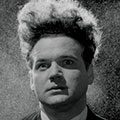On Monday we pitched ideas for our major portfolio pieces to the class. I’m continually impressed and jealous of the great ideas people in the studio come up with — their ideas had a ton of variety and personality, while mine are pretty straightforward by comparison.
I have two options in mind for my piece. I’ve been thinking about the idea of expressing criticism through video rather than text, so both of my ideas are subjects that would lend themselves to visual presentation if that’s the way I end up going. My plan is to outline/sketch each piece in writing before turning one into a video essay, so I can keep all of my options open for the final piece (and giving me an out if I find the video process too difficult and have to go back to text). I’ve been watching a lot of video essayists on YouTube in preparation (in particular nerdwriter1, YMS and Dan Golding), and I’m really excited to give it a go myself.
Option 1: After making a number of films with clear and admitted stylistic influences (i.e. Robert Altman, Martin Scorsese), Paul Thomas Anderson perfected his voice with There Will Be Blood.
Option 2: The symbolism and significance of food, cooking and eating in the films of Hirokazu Koreeda, particularly focusing on Still Walking, Like Father Like Son and Our Little Sister (and perhaps widening out to the significance of food in Japanese culture/film generally?).
